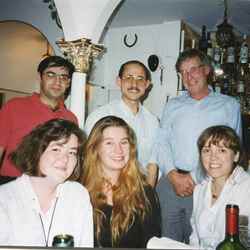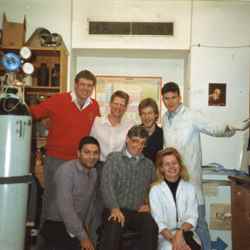Professor William Griffith
Winner: 2020 Award for Exceptional Service
Imperial College London and RSC Historical Group
For outstanding service to the Royal Society of Chemistry through our Historical Group and for advising on activities celebrating the history of the chemical sciences.
Celebrate Professor William Griffith
#RSCAwards
There is so much that chemistry offers – the thrill of discovering new reactions or preparation of new chemicals, particularly when these can be practically applied, e.g. to new medicines, vaccines etc. There is (particularly in these difficult times) a great need for new approaches to manufacturing in the chemical industry.
Professor Griffith’s chemical work was mainly centred on compounds of the six platinum metals, ruthenium, osmium, rhodium, iridium, palladium and platinum. Some of the molecules of these had unusual shapes, which he investigated, and some (particularly of ruthenium and osmium) were very effective as catalysts in the oxidation of sensitive organic groups. Professor Griffith and his team collaborated with Professor Steve Ley (at IC and then Cambridge) in using such compounds to make useful pharmaceutical drugs.
His writings on the history of chemistry include papers on Charles Hatchett (1765–1847), a Londoner who discovered the element niobium in 1802; on Marie Curie who received two Nobel Prizes; on ‘Joseph Priestley in London’; on Charles Darwin’s and Charles Dickens’ interest in chemistry; on Mendeleev’s difficulties in accommodating the platinum-group metals in his Periodic Table; and on the curious tale of the discovery of palladium by Wollaston (1766–1828) in 1802.
Read full biography

